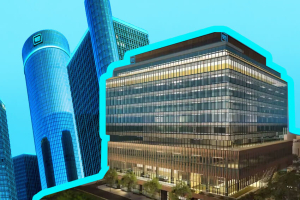
Tesla, The Universal EV Charging Station Of America?
 A must for an all-electric driving future is a reliable, fast charging network — one that stretches from Southern California to the outer reaches of Maine. Soon, the best charging network in the country will be available to all EV drivers.
A must for an all-electric driving future is a reliable, fast charging network — one that stretches from Southern California to the outer reaches of Maine. Soon, the best charging network in the country will be available to all EV drivers.
The Biden administration announced Wednesday morning that electric automaker Tesla will open part of its U.S. charging network to electric vehicles produced by rival automakers as part of a $7.5 billion federal program to electrify the nation's highways. By the end of next year, Tesla will open 3,500 new and existing superchargers along highway corridors, as well as 4,000 slower chargers at locations like hotels and restaurants, to non-Tesla customers, the administration said.
The move could help turn Tesla into the universal filling station of the EV era and is not the first time government largess has make the company more profitable.
From Tesla to SpaceX, CEO Elon Musk has never been shy about jumping on a lucrative government program. Neither company would have made it without early and continuing government subsidies. Tesla got off the ground with help from the government: a $465 million Energy Department loan issued in 2010 (The funds were double the amount that Tesla raised when it went public that year). SpaceX was resuscitated with a 1.6 billion NASA contract, which the company would have folded without. NASA has since given SpaceX $5.4 billion. The relationship not only earned SpaceX money but also respect and trust in the industry, said Laura Forczyk, a space consultant.
An analysis in 2020 by Grid found Tesla and SpaceX have received more than $7 billion in government contracts alone and billions more in tax breaks, loans and other subsidies. Indeed, government subsidies have been Integral to Tesla making almost any profit at all. Over the last few years Tesla has sold at least $6 billion worth of government-backed electric vehicle credits, Grid reported. Twice in recent years, these sales were pivotal to the company posting a profit instead of a loss, according to an analysis by Trefis, a financial data firm.
Opening Tesla charging stations to “other” EVs has always been part of the companies long term profitablity plan. Mr Musk, in mid-2021 said the point of Tesla charging network was "not to create a walled garden and use that to bludgeon our competitors." The company has opened up some superchargers in Europe and Australia to non-Tesla owners since 2021. In a blog post shared by Tesla last year, the company stated, “Access to an extensive, convenient and reliable fast-charging network is critical for large-scale EV adoption. That’s why, since opening our first Superchargers in 2012, we have been committed to rapid expansion of the network. Today, we have more than 40,000 Superchargers worldwide.”
Tesla's network opening access could turn out be a quick win for the federal government’s ambitious program to build 500,000 EV chargers by 2030, as well as a Real-time boost for Tesla profits and for Tesla’s coming battle with other charging companies, such as EVgo Inc and ChargePoint Holdings Inc. Analysts said the amount of federal funds at stake meant Mr Musk had to either act on the plan or risk other charging companies taking the market. Chris Harto, a senior policy analyst at Consumer Reports, said, "There is no doubt the $7.5 billion in federal charging investment threatens Tesla's competitive advantage. That is actually the entire point of the program."
It’s possible Mr Musks’ feet dragging opening up the U.S network revolved around the company waiting on government subtitles to help it corner marketshare in the commercial EV charging station space. A White House official said at the briefing that Tesla would be eligible for a subsidy - including retrofitting its existing fleet - as long as its chargers would allow other vehicles with a federally backed charging standard called CCS to charge. Tesla has 17,711 superchargers, accounting for about 60% of total U.S. fast chargers that can add hundreds of miles of driving range in an hour or less. There are also nearly 10,000 "destination" chargers with Tesla plugs that can recharge a vehicle overnight.
According to the White House, a host of other companies are announcing plans this week as well. Hertz and BP are building a network of interoperable stations largely centered on airports. Another partnership is between Pilot Company, General Motors, and EVgo for another network of private, fast chargers set to be located at existing Pilot and Flying J roadside stops. Other smaller private commitments announced by the White House Wednesday came from companies like TravelCenters of America, Mercedes-Benz, Volvo, and Starbucks. Some of the companies assure that the first chargers will come online this year, while Biden officials promise the final experience will be user friendly and “eliminate the current practice of loading up your iPhone with 30 different apps, depending on where you pull up to charge.”
Tesla (TSLA) stock advanced 7.5% to 209.42 Tuesday during market trade.









